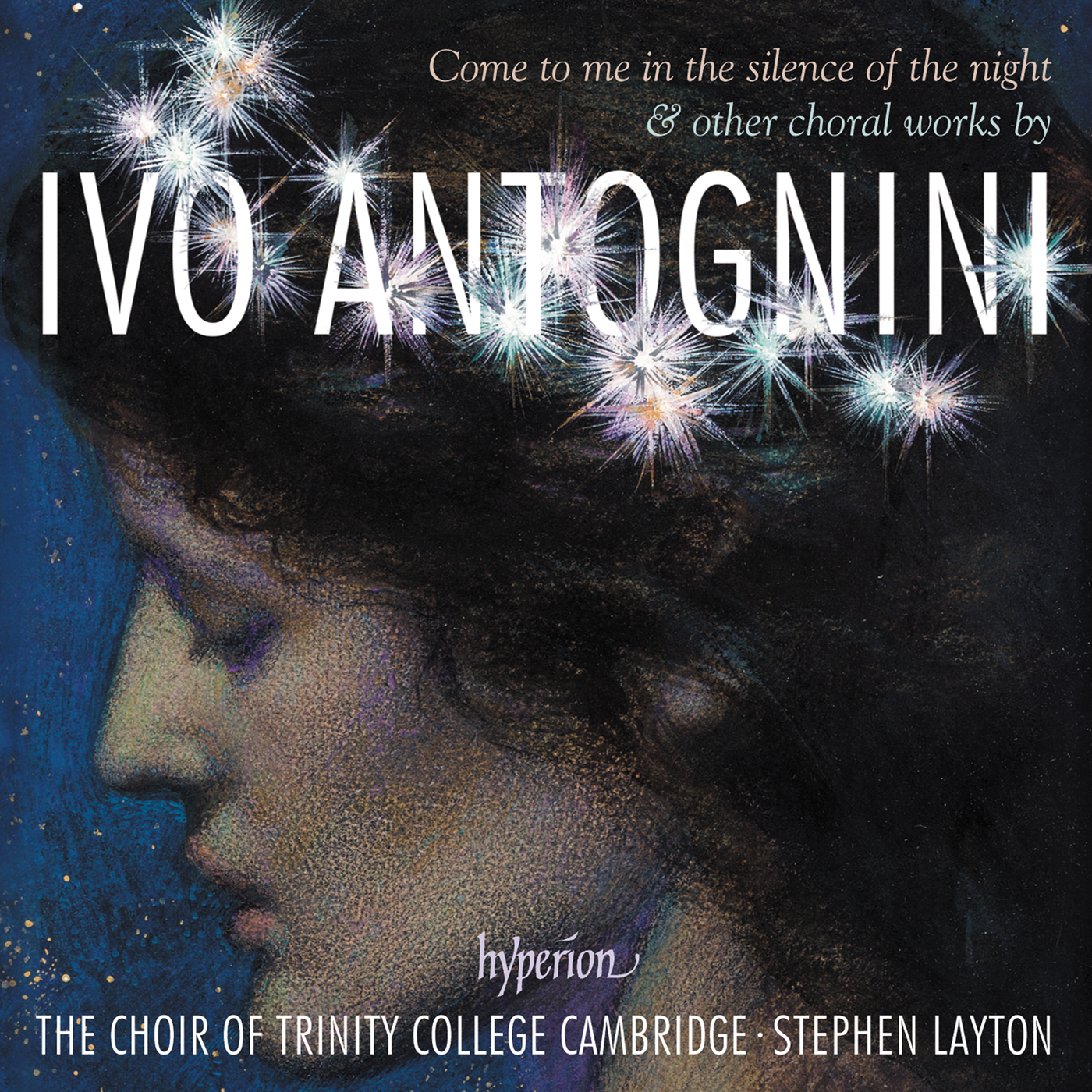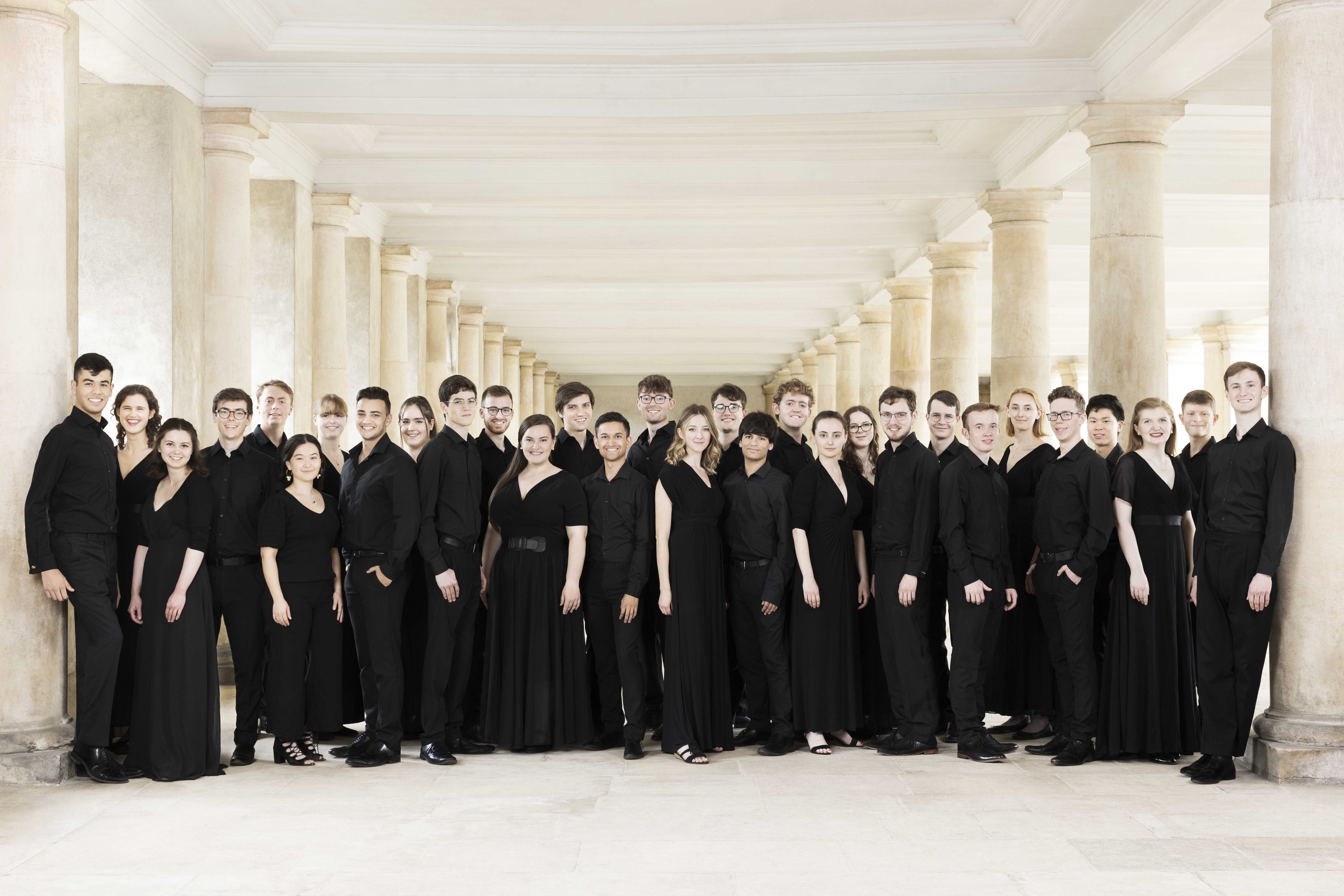Ivo Antognini - Choral works - Music Web International
> See recording details...“Throughout his time as Director of Music at Trinity College, Cambridge (2006-2023), Stephen Layton has championed the work of contemporary composers (whilst not neglecting, by any means, the traditional repertoire). For Hyperion he has recorded a good deal of recent music with the college choir, often on single-composer discs. The latest composer to benefit from this sponsorship is the Swiss composer, Ivo Antognini.
Until now I’ve been unaware of Antognini’s music so some background information may be helpful to our readers; for this I draw on Paul Conway’s booklet notes. Ivo Antognini was born in Locarno, Ticino, Switzerland. After obtaining a degree in piano in Lucerne in 1985, he studied jazz. The turning point in his musical career occurred in 2006 when he encountered the Swiss children’s choir, Coro Calicantus. Since then, his primary compositional focus has been on choral music.
The pieces on Stephen Layton’s programme, all of which are for a cappella choir and mainly scored for SATB with divisions, were written between 2010 and 2021. Some of the pieces were composed for the Trinity College choir. One such is Canticum novum, which is for SSATB. The text is the first two verses of Psalm 95, which Antognini sets to music that is lively, joyful and full of energy. For most of the piece, the singers need great rhythmic precision and that’s exactly what Layton and his choir deliver. In 2021, Ivo Antognini composed a set of Evening Canticles for Trinity. Paul Conway has a nice turn of phrase for the Magnificat; he says that Antognini uses the text “as if it were the storyboard of a film”. I know just what he means. The music is eventful, changing its nature frequently as the words change, yet retaining overall structural coherence. I think the setting is a most interesting and imaginative response to the text. The ‘Glory be’ is thoughtful and lyrical. The Nunc dimittis is no less successful. Antognini begins in subdued, tranquil vein but his music grows in radiance at ‘To be a light to lighten the Gentiles’. The canticle ends with a variant of the ‘Glory be’ from the ‘Mag’. These are very impressive Evening Canticles and I hope that whoever succeeds Stephen Layton as Director of Music at Trinity College will retain them in the choir’s repertoire. Surge amica mea received its first performance from Layton and the Trinity choir, even though the piece was written for another choir. The piece sets words from the Song of Songs; as befits the text, the music features warm, sensuous harmonies. It’s a gorgeous little piece.
I think it was a shrewd decision to open the programme with Come to me in the silence of the night because I suspect this piece – and the performance – will ‘hook’ listeners and encourage them to listen on; it certainly had that effect on me. It’s a setting of the poem Echo by Christina Rossetti. Setting the tone for much of what is to follow on the disc, the harmonies are soothing and lovely – I sense jazz influences at times – and the piece is built on a most attractive melody. I said that the harmonies – and, by implication, the music – are soothing, but this does not preclude a degree of ecstatic urgency in the writing at times when the words demand that response.
O magnum mysterium is a beautiful piece. It was composed for the church choir which Antognini’s wife conducts. Paul Conway tells us that it has become the composer’s most popular work judging by the number of countries in which it has been performed. I’m not surprised; it’s a rapt creation which conveys, in Conway’s words, the “awe and wonderment at the coming of Christ”. There’s also a connection with his wife’s church choir behind Laudate Dominum. Antognini composed it at pace following the death of a friend who had been a member of that church choir. He got to work almost immediately on returning home from the funeral. The text is the very short (four-line) Psalm 116, which is very often set to extrovert music. Here, writing in the shadow of his friend’s passing, Antognini shows that there’s more than one way to offer praise. His music expresses what I might call rejoicing in recollection. It’s a lovely tribute to a departed friend.
If Laudate Dominum was somewhat introverted – in a very good way, I hasten to add – Jubilate Deo is unashamedly upbeat. The piece is scored for an SATB solo quartet and SSATBB choir. The soloists sing as part of the choral texture and, my goodness, they – and the full choir – are kept busy. It’s a buoyant, rhythmically vital piece and it must be challenging not only to fit all the notes in but also to sustain the energy. Needless to say, the Trinity singers are successful in every respect. I enjoyed the piece very much, not least the surprise ending (no spoilers on MusicWeb!) In complete contrast, The Angel provides a serene conclusion to the programme. This is a setting of a dream-like poem by William Blake. Much of the music is slow and mysterious, though there are ecstatic outbursts in two of the four stanzas. Antognini’s music is beautifully imagined for voices.
I was unaware of the music of Ivo Antognini until this disc arrived but I liked what I heard very much. All the music is very well conceived for choral forces; the textures are consistently interesting; the harmonic language and melodies make the music very accessible. In short, this is imaginative choral music by a composer who clearly has something to say and who responds very well indeed to the texts he sets.
Antognini is brilliantly served by the Choir of Trinity College, Cambridge. These performances are fully up to the standard that has earned them such a strong reputation. I think this music is particularly suited to fresh, young and very well-trained voices, such as we have here. Throughout the programme Stephen Layton’s thorough training ensures that rhythmic precision, blend, tuning and clarity of both words and music are all excellent. The recordings were made by the seasoned team of engineer David Hinitt and producer Adrian Peacock. They have captured the sound of the choir most pleasingly in the sympathetic acoustic of the Church of St Peter and St Paul, Salle; from memory, that was a favoured recording haunt of The Tallis Scholars some years ago. The documentation is excellent; Paul Conway’s notes give us a clear and succinct introduction to the music.
I shall be looking out for more music by Ivo Antognini.”
John Quinn

Hyperion Records CDA68425
